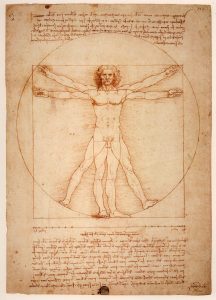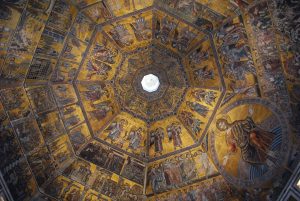
My starting point is a chapter in Critique of Intelligent Design by Fisher/ Clark/York (1). The (I assume publisher’s) blurb on the back of the book says that it “offers empowering tools to understand and defend critical and scientific reasoning in both the natural and social sciences and society as a whole”. Two quotes from supportive academics, chosen from a total of seven, are as follows:
- the authors “never lose sight of the real issue which is the struggle between materialism and supernaturalism as an explanation for the world of phenomena” (Richard Lewontin, Harvard Professor).
- “A scholarly and compelling book showing intelligent design to be an anti-Enlightenment project — and one full of illusion, superstition, and hidden reactionary agendas. Anyone interested in science and reason rather than fairy tales about a Celestial Designer should get hold of a copy” (Peter Dickens, University of Cambridge, UK).
I hope, in the light of the above, that I do not have to spell out that this book is not about science, rather a philosophical battle between materialism and spirituality (supernatural explanations). Despite the enthusiasm of these seven academics, this book is pretty awful, and anything but scholarly. I will offer a more detailed critique in later articles.
The chapter I have in mind is about the Renaissance and is called Enlightenment Materialism and Natural Theology. It begins: “During the Renaissance numerous long lost works of antiquity were recovered as humanists sought out the missing classics. … Poggio Bracciolini located a copy of Lucretius’s De rerum natura. … A revival of interest in Epicureanism followed, giving new impetus to materialist thought”. This historical detail may be true, although I have never heard it before, but their claim that the Renaissance was a revival of early materialist thought is the complete opposite of the truth. The Renaissance was known rather for the revival and celebration of works by authors whose views they oppose and are seeking to condemn.
This was a period called Renaissance Humanism by later scholars, which was actually a revival of spiritual ideas: Platonism, Neoplatonism, and Hermeticism, for example. Let’s take a look at some significant figures; I believe that the following three are the most important.
Perhaps the best known name now is Petrarch (1304–1374), who sought out ancient manuscripts, and attempted to reconcile them with Christian texts.
Less well known names nowadays, but highly significant at the time, and more important for the purposes of this article, were:
Marsilio Ficino, (1433–1499), who was especially interested in Plato and Neoplatonism — that’s about as spiritual as it’s possible to be. He translated and commented on many texts, like Plutarch seeking to assimilate such ideas into Christian theology. His own writing included Platonic Theology, which was a philosophical study of the soul, Book on the Christian Religion, and tracts on astrology. He was actually ordained a priest and became a church official of Florence Cathedral. So much for a “new impetus to materialist thought”!
Giovanni Pico della Mirandola (1463–1494), whose most famous work is Oration on the Dignity of Man, part of his attempt at a synthesis of all religious schools of thought — pagan, Christian, Islamic and Jewish — thus an early Perennial Philosophy. Does this sound like someone who was seeking to give new impetus to materialist thought? In case anyone thinks I am misrepresenting the three materialist authors, this text has been described as “the manifesto of humanism”, and “the most succinct expression of the mind of the Renaissance”, the primary meaning of which was “the rebirth of man in the likeness of God” (2).
So what are we to make of our three authors’ statement? Are they merely ignorant, or are they deliberately lying? Whatever the answer, they lack intellectual credibility, despite the praise heaped on them by the seven academics; if writers have to resort to such a deception, why should anyone accord them any respect? This is what happens, I believe, when fanatics are not interested in the truth, only in converting others to their own ideas.

What actually triggered “a new impetus to materialist thought” was not Renaissance Humanism, rather the so-called ‘Enlightenment’ (or, as I would prefer to call it, the New Dark Ages), with its exaggerated emphasis on science and reason, and its rejection of religion and spirituality in favour of a materialist philosophy, all of which our three authors are obviously promoting.
Alongside this development, and presumably a consequence of it, was a change in the meaning of the word Humanism. When the Enlightenment took over, we ended up with a Humanism devoid of any spirituality, and appropriated by Darwinism.
There is more that I could say, but the most obvious evidence for this is that arch-Darwinian atheist Richard Dawkins is the Honorary Vice-President of Humanists UK. Here is his estimation of what it means to be human: “We are machines built by DNA whose purpose is to make more copies of the same DNA. … This is exactly what we are for. We are machines for propagating DNA, and the propagation of DNA is a self-sustaining process. It is every living object’s sole reason for living” (3). In similar vein, he has also written that an elephant is a roundabout way of making elephant DNA. By extension therefore, a human being is a roundabout way of making human DNA. If we are merely machines for propagating human DNA, a further step would be to say that the genius of Beethoven’s 9th symphony, Bach’s B minor mass, Titian’s paintings is a meaningless, accidental by-product of human DNA propagating itself. I hope I don’t need to explain why I think this is madness.

Conclusion
This is my personal take on what has happened:
Originally Humanism was a celebration of humanity as spiritual beings created, as Genesis put it, in the image of God. Although Shakespeare came later, the attitude of Renaissance Humanism is summed up by these words of Hamlet: “What a piece of work is a man! How noble in reason! how infinite in faculties! in form and moving how express and admirable! in action, how like an angel! in apprehension, how like a god! the beauty of the world! the paragon of animals!” (Act II, scene 2).
Humanism now means something like, in the absence of God humans taking centre stage, elevating humans to the status of gods, without having to take into account any higher powers. This will obviously sound reasonable to many, but to me reveals a naïve, over-optimistic view of human nature, failing to take into account the dark side. Let me make it clear that what I am about to say has nothing to do with the stated goals of modern Humanism. However, we have evidence of what happens when atheistic humans elevate themselves to the status of gods in the appalling totalitarian regimes of Stalin and Mao Tse Tung. Also, although Darwin would not have wanted it, his ideas were an inspiration for Hitler, and the Eugenics movement.
Therefore, when modern Humanism tries to remove God and replace him/her by humans, this is potentially hubris of an ugly and dangerous kind. Let’s seek a new Renaissance of ancient wisdom in the spirit of the original Humanism.

ADDENDUM
Since writing the above, and the follow-up post, I have been reading Reincarnation: The Phoenix Fire Mystery (4). This is a wonderful book, ostensibly a compilation of quotes and related material from believers in reincarnation down the ages, which ends up as a magnificent 500-page encyclopedia and history of spiritual thinking from Hinduism to modern times.
My main point will follow. However, in order to further reinforce what I said above, I’ll make a brief reference to their chapter on the Renaissance, which actually begins with a section called The Italian Renaissance and the Neoplatonic Revival. As I did, they singled out Marsilio Ficino and Pico della Mirandola as highly significant figures. They also mention someone I had not heard of before, George Gemistus, known as Pletho, who was “in effect a founding father of the Italian Renaissance… chiefly memorable for having been the first person who introduced Plato to the Western world” (p243). He was “a venerable Byzantine Platonic philosopher” who gave Cosmo de Medici (the patron of the Renaissance) “the idea of founding a Platonic academy”. This is what led to Cosmo choosing Ficino “for a thorough education in Greek language and philosophy”. How can all this be described as “a new impetus to materialist thought”? (5)
The chapter opens by referring to the Hulsean Lectures of the scholar W. R. Inge (6), who describes the Italian Renaissance thus: “It was like an awakening from a deep sleep… At the Renaissance the dropped threads are taken up again… New worlds are opened to the seeker after truth, Galileo’s new worlds above, the new worlds of the explorers beyond the seas, and the new world of the philosophers within”.
The authors say that “the new world within had its source in the rebirth of the philosophy of Plato and the Neoplatonists. Inge states that the Platonic tradition had never really been extinct: ‘or we may say more truly that the fire which, in the words of Eunapius, “still burns on the altars of Plotinus”, has a perennial power of rekindling itself when the conditions are favourable’ ”.
Above I called for “a new Renaissance of ancient wisdom in the spirit of the original Humanism”. In the follow-up I said that, in the light of the depressing scenario outlined by Bertrand Russell, Stephen Weinberg, Jacques Monod, Albert Camus, Richard Dawkins, E. O. Wilson (and others), modern science has become “a hopeless cul-de-sac from which we need to escape”.
Surely the conditions are now favourable for a rekindling of the wisdom of the ancients.
===========================================================================================
Footnotes:
(1) For details, and the context, see my Introduction.
(2) from the introduction of http://www.andallthat.co.uk/uploads/2/3/8/9/2389220/pico_-_oration_on_the_dignity_of_man.pdf
(3) https://www.azquotes.com/quote/573352. I assume this originally came from The Selfish Gene.
(4) Joseph Head & S. L. Cranston, Crown Publishers, 1977
(5) as (1), p65
(6) published as The Platonic Tradition in English Religious Thought, Longmans, Green and Co., 1926. The following quotes are on pages 21, 22, and 28.